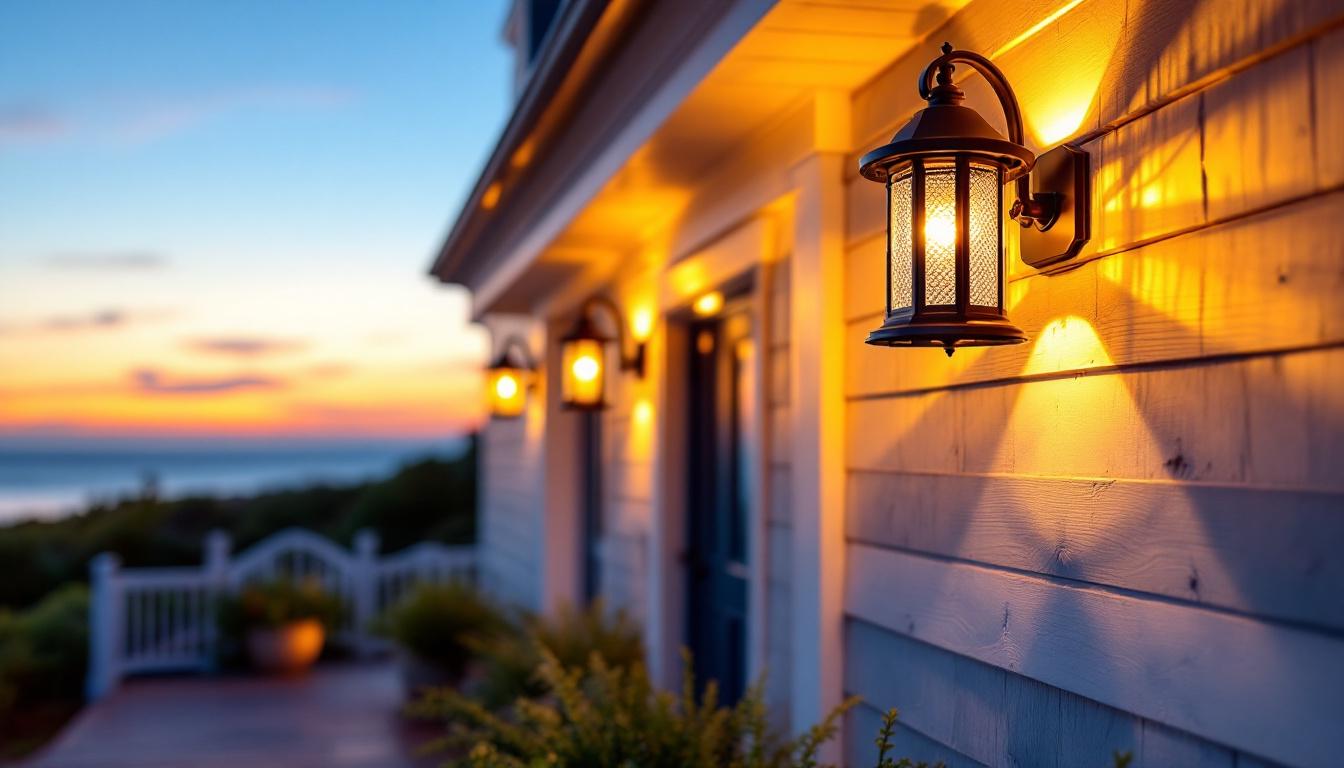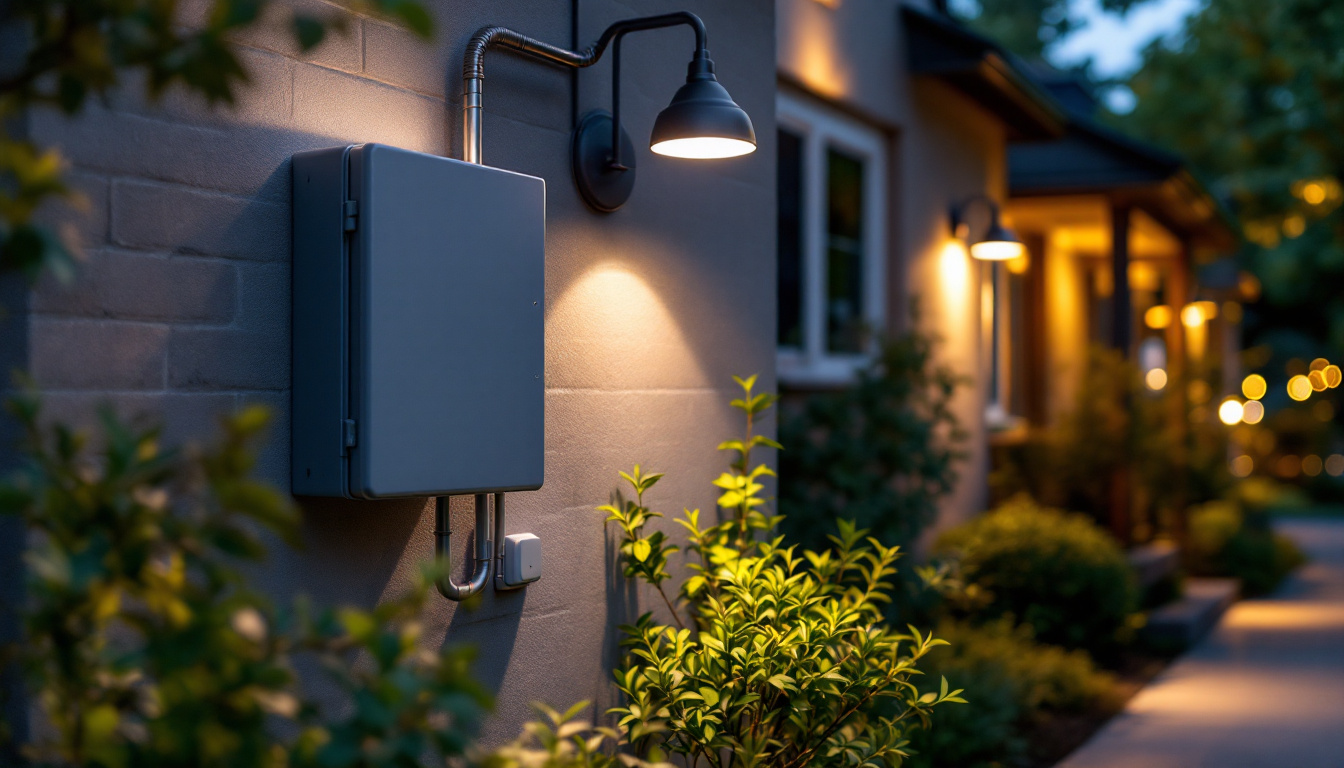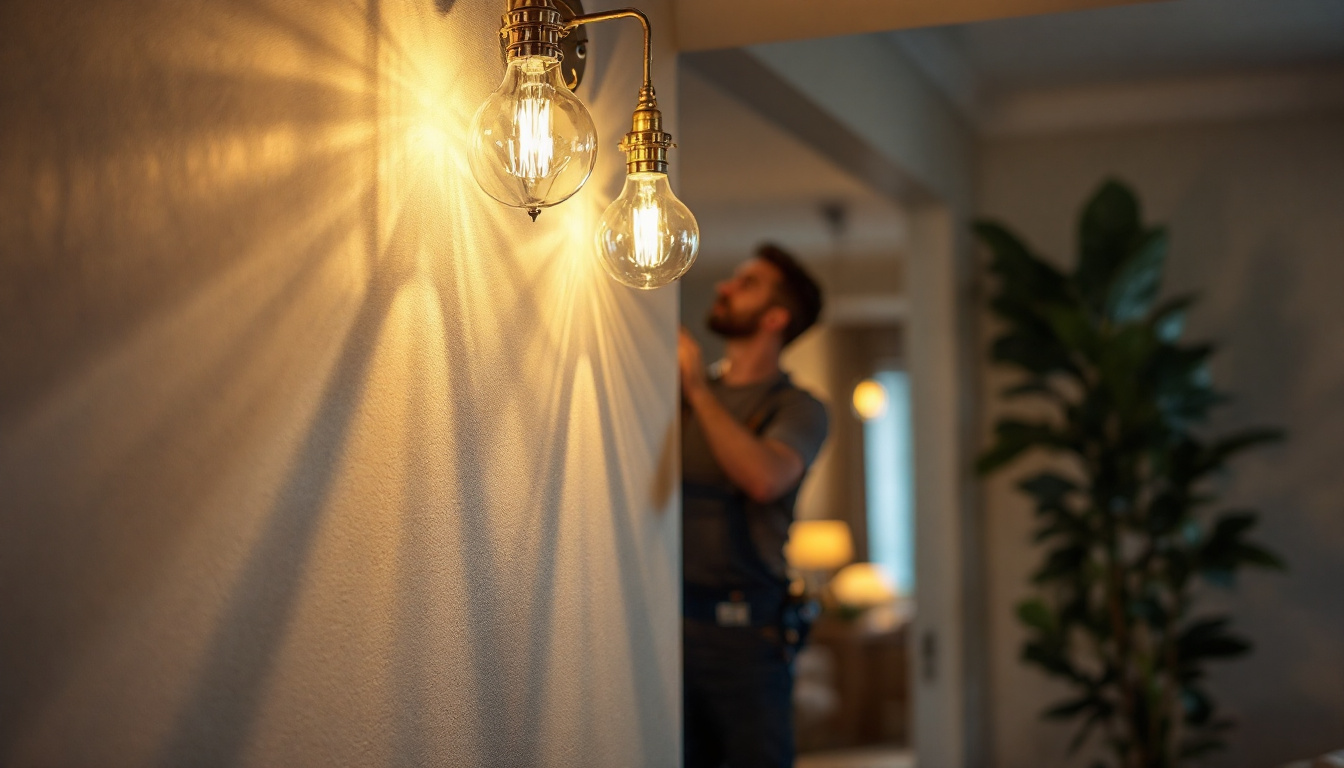
Nantucket, with its historic charm and coastal environment, presents a distinctive set of challenges and opportunities for lighting contractors. The island’s architecture, weather conditions, and community expectations require a tailored approach to lighting design and installation.
Lighting contractors working in Nantucket must balance preserving the aesthetic integrity of historic buildings with implementing modern, energy-efficient lighting solutions. Additionally, the coastal climate demands fixtures and materials that can withstand salt air, humidity, and occasional harsh weather conditions without compromising performance or appearance.
Nantucket’s historic district is renowned for its well-preserved 18th- and 19th-century buildings. Many of these structures are subject to strict preservation guidelines, which often limit the types of lighting fixtures that can be used and the manner in which lighting is installed.
Contractors should familiarize themselves with local regulations and collaborate closely with preservation committees to select lighting options that complement the traditional shingle-style architecture. Using fixtures with classic designs or custom-made pieces that blend seamlessly with the building’s character can help maintain the island’s visual heritage. Furthermore, the use of warm, soft lighting can enhance the inviting atmosphere of Nantucket’s streets at night, allowing the historical features to shine while creating a cozy ambiance that attracts both residents and visitors alike.
The proximity to the ocean means that lighting systems on Nantucket must be resilient. Salt corrosion is a primary concern that can degrade metals and electrical components over time. Contractors should prioritize materials such as marine-grade stainless steel, powder-coated aluminum, or specially treated plastics designed to resist corrosion.
Moreover, fixtures should be rated for wet or damp locations and sealed against moisture ingress. Proper sealing not only extends the lifespan of the lighting but also ensures safety and consistent performance in the island’s often humid and salty atmosphere. Additionally, energy-efficient LED lighting solutions are becoming increasingly popular in Nantucket, as they not only reduce energy consumption but also generate less heat, making them suitable for prolonged use in outdoor settings. The integration of smart lighting technology can further enhance functionality, allowing for adaptive lighting that responds to environmental changes, thus ensuring both sustainability and safety in this unique coastal environment.
Energy efficiency is a growing priority for Nantucket homeowners and businesses, reflecting broader environmental concerns and rising energy costs. Lighting contractors can play a pivotal role in promoting sustainable practices through their project designs and product recommendations.
LED lighting has become the industry standard for energy efficiency and longevity. For Nantucket projects, LEDs offer the added benefit of reducing maintenance visits, which can be costly and logistically challenging on an island.
Contractors should select LED fixtures with high Color Rendering Index (CRI) values to ensure natural and appealing light quality, especially important in residential and hospitality settings. Dimmable LED options can also provide flexibility for mood and function, enhancing the user experience while conserving energy. Additionally, the versatility of LED technology allows for creative applications, such as accent lighting that highlights Nantucket’s unique architectural features or landscape elements, thereby enriching the aesthetic appeal of both public and private spaces.
Smart lighting controls such as occupancy sensors, daylight harvesting systems, and programmable timers can significantly reduce energy consumption. These technologies allow lighting to adjust automatically based on occupancy or natural light levels, minimizing waste.
For Nantucket’s seasonal population fluctuations, smart controls can optimize lighting usage during off-peak periods, further improving energy savings and reducing operational costs for property owners. Moreover, integrating smart technology can enhance safety and security, as lighting can be programmed to illuminate pathways and entrances during specific hours, deterring potential intruders while providing peace of mind to residents and visitors alike. As the island continues to embrace eco-friendly initiatives, the combination of LED technology and smart controls positions Nantucket as a leader in sustainable lighting solutions, setting a precedent for other communities to follow.
Outdoor lighting in Nantucket must address both aesthetic and functional demands. Effective landscape lighting enhances property curb appeal and safety while respecting the island’s natural environment and dark sky initiatives.
Many Nantucket residents value the island’s dark skies, which are increasingly rare in developed areas. Lighting contractors should design outdoor systems that minimize light pollution by using shielded fixtures, directing light downward, and selecting appropriate brightness levels.
Low-glare, warm color temperature lighting (typically 2700K to 3000K) is preferred to maintain a welcoming ambiance without disturbing neighbors or local wildlife. This approach aligns with Nantucket’s community standards and environmental stewardship goals. Furthermore, incorporating timers and motion sensors can enhance energy efficiency and ensure that lights are only active when needed, further reducing unnecessary light spill and conserving energy.
Outdoor fixtures must be both durable and visually appealing. Contractors should recommend products that combine corrosion resistance with design elements that complement Nantucket’s coastal and historic character.
Pathway lights, wall sconces, and post lights with classic or nautical-inspired designs can enhance outdoor spaces while providing necessary illumination. Additionally, LED landscape lighting with adjustable beam angles allows for precise highlighting of architectural features or garden elements. The use of materials such as marine-grade stainless steel, copper, or weather-resistant finishes ensures longevity against the harsh coastal elements, while also offering a timeless aesthetic that harmonizes with the island’s charm.
Moreover, integrating smart lighting technology can elevate the functionality of outdoor spaces. Homeowners can control their lighting remotely, adjusting brightness and color temperatures to suit different occasions or moods. This flexibility not only enhances the user experience but also allows for creative lighting designs that can transform a space for gatherings or quiet evenings under the stars. As Nantucket continues to embrace sustainable practices, the incorporation of solar-powered fixtures can also be an attractive option, providing illumination without drawing on the grid and further supporting the island’s commitment to environmental preservation.
Adhering to technical codes and safety standards is essential for lighting contractors operating in Nantucket. Compliance ensures not only the safety of occupants but also the longevity and reliability of the lighting systems installed.
Contractors must stay current with the National Electrical Code (NEC) and any local amendments specific to Nantucket. This includes proper grounding, circuit protection, and use of weatherproof enclosures for outdoor installations.
Special attention should be given to wiring methods in coastal environments, where corrosion and moisture can compromise electrical integrity. Using marine-grade wiring and connectors can mitigate these risks. Furthermore, it’s crucial for contractors to regularly inspect and maintain these installations, as the salty air and high humidity can accelerate wear and tear, necessitating a proactive approach to electrical maintenance.
Many Nantucket properties feature outdoor decks, docks, and waterfront areas where lighting must meet stringent safety requirements. Fixtures installed near water should have appropriate Ingress Protection (IP) ratings, such as IP65 or higher, to prevent water damage and electrical hazards.
Lighting contractors should also consider the placement of fixtures to avoid trip hazards and ensure adequate illumination of pathways, stairs, and entry points, enhancing overall safety for residents and visitors. Additionally, the use of motion sensors and timers can improve safety by providing light only when needed, thus reducing energy consumption and enhancing security. The integration of smart lighting solutions can also allow homeowners to control their outdoor lighting remotely, adding convenience and peace of mind, especially in high-traffic areas.
Success as a lighting contractor on Nantucket depends not only on technical expertise but also on building trust and rapport with clients. The island’s tight-knit community values professionalism, reliability, and personalized service. Understanding the unique culture and lifestyle of Nantucket residents can further enhance these relationships, as clients appreciate contractors who take the time to connect on a personal level. Whether it’s discussing local events or sharing stories about the island’s history, these interactions can create a sense of camaraderie that goes beyond mere business transactions.
Taking the time to understand client needs, preferences, and budget constraints is crucial. Contractors should provide clear explanations of lighting options, energy savings, and maintenance considerations to help clients make informed decisions. This level of detail not only empowers clients but also positions the contractor as a knowledgeable partner in the project. Moreover, educating clients about the latest trends in sustainable lighting can inspire them to consider eco-friendly options that align with Nantucket’s commitment to preserving its natural beauty.
Offering visual aids such as lighting simulations or mock-ups can enhance client confidence and satisfaction. Being responsive and transparent throughout the project lifecycle fosters positive relationships and repeat business. Regular check-ins and updates can also reassure clients that their project is progressing smoothly. Additionally, soliciting feedback during and after the project can provide valuable insights into client satisfaction, helping contractors refine their services and build a reputation for excellence.
Familiarity with Nantucket’s unique environment, regulations, and supplier networks gives contractors a competitive edge. Partnering with local suppliers and artisans can also support the island’s economy and provide clients with customized, high-quality solutions. By sourcing materials locally, contractors can ensure that their projects not only meet aesthetic standards but also adhere to the island’s strict building codes and environmental considerations. This commitment to local craftsmanship can resonate deeply with clients, who often prefer to support businesses that prioritize the community.
Attending community meetings and staying engaged with local development plans allows contractors to anticipate upcoming projects and align their services with Nantucket’s evolving needs. Understanding the island’s seasonal fluctuations and how they impact construction schedules can also help contractors plan more effectively. Furthermore, being involved in local initiatives, such as sustainability programs or community beautification projects, can enhance a contractor’s visibility and reputation, positioning them as a trusted resource within the community. This proactive approach not only strengthens client relationships but also contributes to the overall enhancement of Nantucket’s charm and character.
Lighting contractors working in Nantucket face a unique blend of challenges and opportunities shaped by the island’s historic character, coastal environment, and community values. By prioritizing preservation, energy efficiency, durability, safety, and client engagement, contractors can deliver lighting solutions that enhance Nantucket’s beauty and functionality.
Adopting best practices tailored to the island’s specific requirements not only ensures successful project outcomes but also strengthens a contractor’s reputation within this discerning market. With thoughtful planning and execution, Nantucket lighting projects can illuminate the island’s charm while embracing modern innovation and sustainability.
Ready to elevate your Nantucket lighting projects with products that embody durability, efficiency, and aesthetic appeal? Look no further than LumenWholesale for all your lighting needs. Our extensive selection of spec-grade lighting products is designed to meet the unique challenges of coastal environments, ensuring your installations shine with quality and reliability. Benefit from wholesale pricing, free shipping, and the convenience of cutting out the middleman. Make your next project a beacon of innovation and sustainability with Wholesale Lighting at the Best Value from LumenWholesale.

Discover how an exterior electrical box can revolutionize your lighting projects by boosting efficiency and safety.

Discover effective strategies for overcoming common challenges in residential lighting projects.

Discover how LED spotlights recessed can revolutionize the lighting industry by saving contractors both time and money.

Discover why LED compatibility with dimmer switches is crucial for lighting contractors.